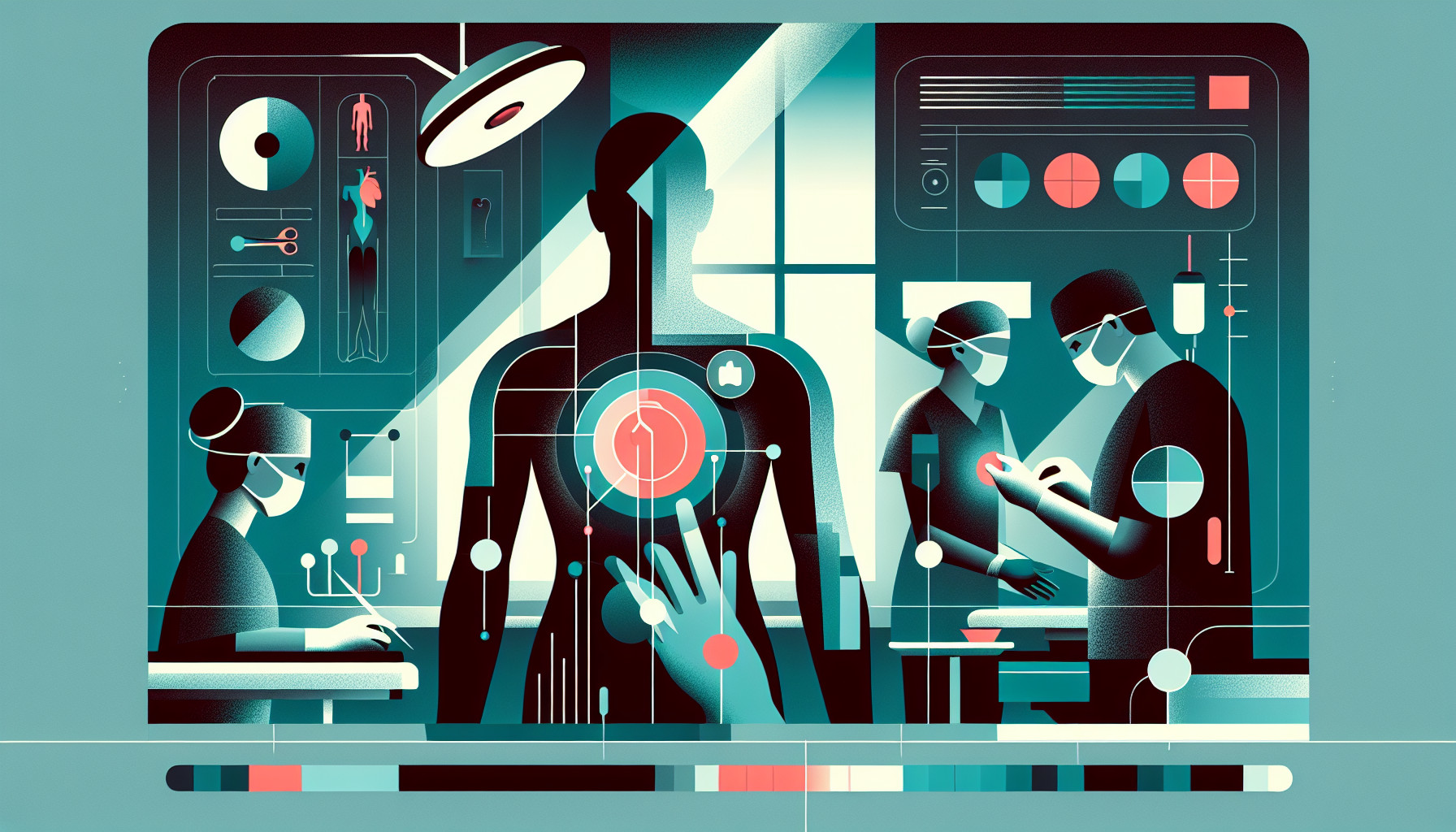Our Summary
This study aims to understand the causes of a type of anal disease called cryptoglandular anal fistula (AF). Currently, it’s thought that inflammation, rather than infection, is more likely to cause the disease to continue or come back. The researchers performed a procedure called a fistulectomy on 20 patients with AF and compared the diseased tissue to healthy tissue from the same patients. They found that certain inflammation-related proteins were more prevalent in the disease tissue. They also found a high number of a specific type of immune cell called Tc17 cells in AF patients. Additionally, there was a lower ratio of two types of cells that play roles in inflammation and repair processes. These findings suggest that AF is characterized by a specific set of immune responses. This new insight could potentially help in developing more effective treatments for AF.
FAQs
- What is the main cause of cryptoglandular anal fistula (AF)?
- What was discovered about the nature of AF through the comparison of diseased tissue and healthy tissue in patients?
- How might this research on the immune responses associated with AF contribute to the development of more effective treatments?
Doctor’s Tip
One helpful tip a doctor might tell a patient about anal fistula surgery is to follow post-operative care instructions carefully to prevent complications and promote healing. This may include keeping the surgical area clean, taking prescribed medications as directed, and avoiding activities that could strain the area. It’s also important to attend follow-up appointments with your healthcare provider to monitor your recovery progress. If you have any concerns or notice signs of infection, such as increased pain, swelling, or discharge, be sure to contact your doctor right away.
Suitable For
Patients who are typically recommended anal fistula surgery are those who have chronic or recurrent anal fistulas that are causing symptoms such as pain, swelling, and discharge. These patients may have tried other treatments such as antibiotics, drainage procedures, or medications without success. Anal fistula surgery is often considered when conservative treatments have failed to resolve the issue and the fistula continues to cause discomfort and complications.
Timeline
Before anal fistula surgery:
- Patient experiences symptoms such as pain, swelling, discharge, and discomfort around the anal area.
- Patient consults with a healthcare provider who performs a physical exam and possibly orders imaging tests to diagnose the anal fistula.
- Treatment options such as antibiotics, drainage of abscesses, and sitz baths may be recommended to manage symptoms temporarily.
- If conservative treatments are unsuccessful, the healthcare provider may recommend surgery to treat the anal fistula.
After anal fistula surgery:
- Patient undergoes anal fistula surgery, which may involve procedures such as fistulotomy, seton placement, or fistulectomy.
- Patient may experience pain, discomfort, and swelling in the anal area immediately following surgery.
- Patient is advised to follow post-operative instructions, such as keeping the surgical area clean, taking pain medications as prescribed, and avoiding strenuous activities.
- Patient may need to attend follow-up appointments with their healthcare provider to monitor healing and address any complications.
- Over time, the surgical site heals, and symptoms of the anal fistula resolve. Patient may experience improved quality of life and reduced risk of recurrence of the anal fistula.
What to Ask Your Doctor
- What are the possible risks and complications associated with anal fistula surgery?
- What is the success rate of anal fistula surgery in terms of healing and recurrence?
- How long is the recovery period after anal fistula surgery?
- Will I need to make any lifestyle changes or follow a specific diet after the surgery?
- Are there any alternative treatments to anal fistula surgery that I should consider?
- How will the surgery affect my bowel movements and anal function?
- Will I need any follow-up appointments or additional procedures after the surgery?
- What can I do to reduce the risk of developing another anal fistula in the future?
- Are there any specific medications or treatments that can help manage pain and discomfort after the surgery?
- How soon can I expect to see improvements in my symptoms after the surgery?
Reference
Authors: Litta F, Papait A, Lucchetti D, Farigu S, Parello A, Tenore CR, Campennì P, Silini AR, Giustiniani MC, Parolini O, Sgambato A, Ratto C. Journal: Colorectal Dis. 2022 Dec;24(12):1567-1575. doi: 10.1111/codi.16290. Epub 2022 Aug 16. PMID: 35916639
